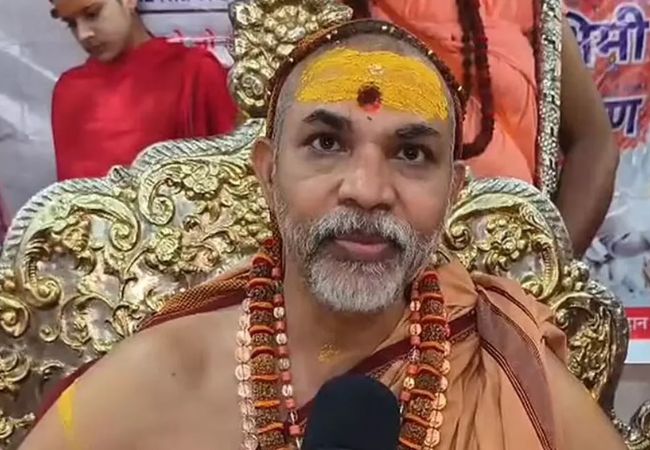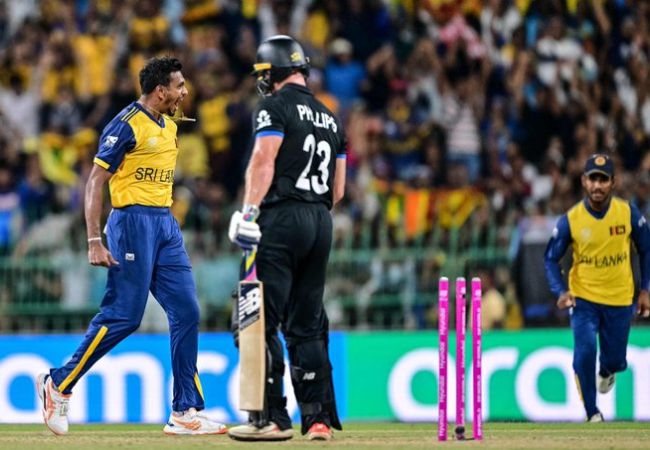Islamabad, Sep 7: In a rare public acknowledgement by a serving Pakistani army chief, General Asim Munir has mentioned the involvement of Pakistan army in the Kargil war as he listed the 1999 conflict with India among the major wars fought with the eastern neighbour.
Munir, the Chief of Army Staff (COAS) was speaking during the Defence and Martyrs Day event at Rawalpindi on Friday.
The 1999 Kargil war ended with India recapturing the border posts occupied by Pakistani infiltrators. India celebrates the victory as Vijay Diwas on July 26.
In his speech, General Munir highlighted the role of the army in defending the motherland with the support of the people of Pakistan and also touched upon various conflicts with India, including the Kargil war.
“Indeed Pakistani nation is a courageous and bold nation, which understands best the importance of independence and how to protect it at any price. Whether the Pak-India wars of 1948, 1965, 1971 and Kargil or Siachen conflict, thousands of martyrs gave sacrifices for the security and honour of the country,” Munir said.
Pakistan had initially distanced itself from the conflict by saying that only private “freedom fighters” were involved in it. However, soon the scale of fighting revealed that the armies of two countries were fighting against each other.
The 2006 book ‘In The Line Of Fire’ written by then Pervez Musharraf, who was the army chief during the Kargil war, clearly acknowledged the Pakistan Army's role.
Musharraf had sent in the Northern Light Infantry men in the Kargil theatre of war. Pakistan awarded Captain Karnal Sher Khan of 27th Battalion, Sind Regiment and Havaldar Lalak Jan of Northern Light Infantry with the highest gallantry award called Nishan-e-Haider after the Kargil war was over.
Munir, in his address, also said the country would “not allow political differences to turn into hatred.”
He asserted that the strong relations between the army and the public would act as the foundation to defeat any enemy trying to create rifts between the two.
“The relation between the armed forces and the nation is of heart,” he said, adding that the nation always strengthened the army in all fields including, “rescue works in the events of natural disasters, foreign hostilities or war against terrorism.”
Pakistan Prime Minister Shebaz Sharif was also present at the ceremony, which was attended by the army’s top brass, senior military and governmental officials, and families of soldiers, among others.
Let the Truth be known. If you read VB and like VB, please be a VB Supporter and Help us deliver the Truth to one and all.
Lucknow (PTI): The Uttar Pradesh Congress on Wednesday staged a statewide protest demanding a fair and transparent inquiry into the FIR lodged against Swami Avimukteshwaranand Saraswati and those who filed the complaint against him.
In a statement issued here, the party said memorandums addressed to Prime Minister Narendra Modi were submitted through district magistrates in all districts of the state.
Uttar Pradesh Congress spokesperson Manish Hindvi told PTI that the memorandums were handed over through the district administration in all 75 districts.
In the memorandum, the party alleged that Saraswati and his disciples were "unnecessarily harassed and humiliated" by police on the occasion of Amavasya and were prevented from taking a ritual bath (at the Magh Mela). It further alleged that some disciples were manhandled and taken to a police station.
The memorandum also claimed that an FIR was later registered against Saraswati, his disciple Swami Mukundanand Brahmachari and several unidentified persons in a sexual harassment case. It termed the case a "conspiracy" aimed at tarnishing the seer's reputation.
Citing Articles 25 and 26 of the Constitution, the memorandum stated that these provisions guarantee religious freedom and the right of religious denominations to manage their own affairs.
It described the position of shankaracharya held by Saraswati as "one of the highest spiritual posts in Sanatan tradition" and alleged that the entire episode appeared to have been "orchestrated in a planned manner".
"We request that the background of the persons who got the FIR registered be investigated in a transparent manner by a retired high court judge and strict action be taken against them," the memorandum said.
It also sought a "fair and transparent probe" into the allegations levelled against Saraswati so that the truth could be established.
Earlier, Uttar Pradesh Congress president Ajay Rai had told reporters in Varanasi after meeting Saraswati that the party stood firmly with him.
The Congress said it would continue to press for an impartial inquiry into the entire episode.
On February 21, an FIR was lodged in Prayagraj against Saraswati and his disciple Mukundanand Brahmachari on charges of sexually abusing two persons, including a minor, over the past year at a gurukul and religious congregations, including the recently concluded Magh Mela.
Days after he was booked, Saraswati had said on Monday that he would not oppose his arrest and asserted that the "fabricated story" would be exposed sooner or later.
At a press conference on Wednesday, Saraswati alleged that criminals rule in Uttar Pradesh, level allegations and influence investigations, as he denied having any contact with the two persons for whose alleged sexual abuse he has been booked.



_vb_77.jpeg)
_vb_00.jpeg)
